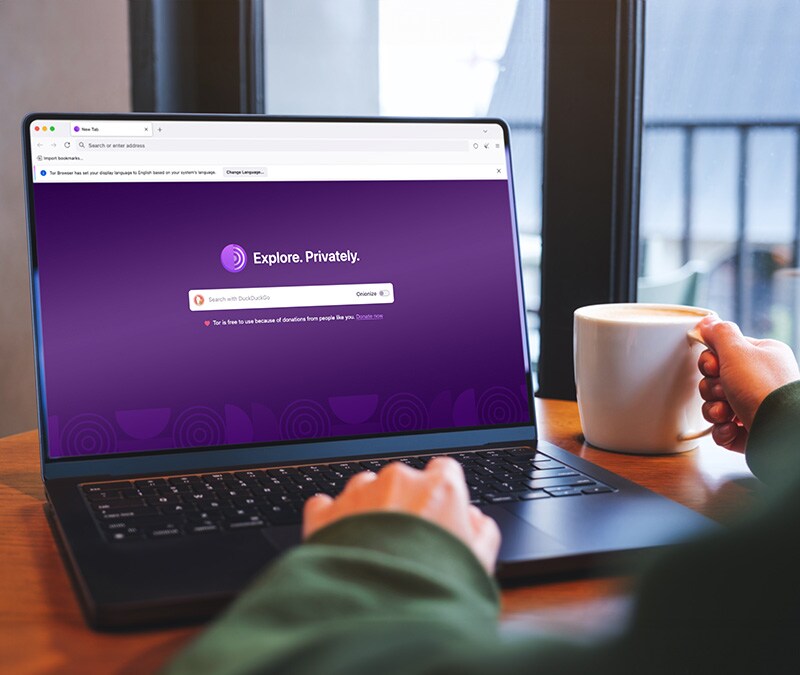Anonymous browsing: How to stay anonymous while browsing the web
Want to stay anonymous while browsing the internet? You'll need a VPN and a couple of other tricks to keep unseen.

Without a Virtual Private Network (VPN) and a couple of other tricks, cybercriminals and companies could be tracking your moves while browsing the internet.
The digital era quickly shifted to the privacy era. People are now much more aware of their privacy online – and if they have it. No one can be faulted for wanting to stay anonymous online. With cookies capturing clicks and search query, it’s easy to want a break from the unsolicited ads that know exactly what you want.
How to browse the web anonymously
It’s fairly simple to stay anonymous while browsing the internet. Using private browsers, connecting through a VPN, and practicing good digital hygiene are all effective ways to keep your online activity anonymous. Here’s how to slip under the radar online and help keep your identity and activity hidden from hackers, advertisers, and others who may be snooping on your network:
1. Download a VPN
If you want to stay anonymous online, the VPN will be your best friend. It’s designed to help keep your online activity private by assigning a unique IP address and helping protect web traffic with bank-grade encryption, like with Norton VPN included in Norton 360.
Norton VPN goes to great lengths to help encrypt your personal information and it doesn’t track or store your online activity. It allows users to check email, interact on social media and pay bills using public Wi-Fi without worrying about cybercriminals stealing information. It also helps prevent companies from tracking online activities or location with its no-log VPN.
When it comes to staying anonymous online, using a VPN is a no-brainer. It provides a baseline of anonymity – which someone would say is enough – but it’s not the only thing you can do to keep your activity to yourself.
2. Use incognito mode or a private browser
If you live in the EU, then you know how every website uses cookies to provide tailored advertising to you. You should be getting a pop-up asking you whether it’s OK that the website tracks your activity.
After time, these cookies add up and not in a delicious way. Before you know it, you’re getting advertisements that use how long you looked at a page and what items you have in your basket to feed you catered deals.
But if you use Incognito (on Google Chrome) or private (on Mozilla Firefox) browsing, you can avoid having these cookies stick with you. Every new session is the same as a brand new person entering the web for the first time; it wipes all browser history, logins and cookies from the cache, like you never existed.
The Tor browser is also an anonymous way to search the web – but it can also lead to the corners of the Dark Web, so make sure you know how to use it.

3. Stay anonymous on your search engine
The big three search engines – Google, Yahoo and Bing – all collect tremendous amounts of data on individuals. If you’re logged into an account with them, they can track your data across different hardware, like if you switch from a laptop to your phone.
However, if you want a browser that you don’t need to go into a different mode just to get it to stop tracking you, there are other options. DuckDuckGo famously ensures that user’s browsing data stays their own, rather than feeding it to a data-hungry company.
DuckDuckGo functions the same as Google or any other web browser, except it doesn’t curate search results based off a user’s past search results. Instead, every web browser sees the same results and ads. The lack of personalisation is a by-product of DuckDuckGo’s rejection of collecting data – thereby helping users remain anonymous while browsing the web.
4. Be selective with your email
If there were ever a digital ID card, an email address would have a strong argument for being it. For many, it’s their way into their online banking account, favourite place to shop online or the social media channel they can’t get enough of.
Once someone has access to that email though, there’s no real way to take that ID card away. You can recover the account and change the password, but if you have tens or hundreds of accounts with that email then you’ll be in for a rude awakening. Not to mention that the more you use your email as an account login, the more information a cybercriminal – or a browser or a company – could gain on you.
Remember: nothing on the internet ever truly stays private.
One way to get around handing out your email for fly-by-night ecommerce shops or websites you’ll only visit once is by using disposable email addresses. There are a number of temporary email address websites, like Guerrilla Mail or Temp-Mail, that give you a ‘throw-away’ email address.
After a certain amount of time (usually around 10 minutes) these email addresses disappear forever. This leaves you with enough time to create an account, verify it, get what you need and get out. It’s not great for the essentials, but it’s helpful when having to sign up for an account with a company you don’t completely trust.
5. Protect your privacy on the internet
If you want to remain anonymous while browsing the internet, you’ll want a single solution that provides a number of tools like a VPN and a password manager. Norton 360 is a comprehensive solution that includes antivirus, phishing protection and a VPN, among other features.
Try Norton 360 today to learn how you can keep anonymous while browsing the internet.
Editorial note: Our articles provide educational information for you. Our offerings may not cover or protect against every type of crime, fraud, or threat we write about. Our goal is to increase awareness about Cyber Safety. Please review complete Terms during enrollment or setup. Remember that no one can prevent all identity theft or cybercrime, and that LifeLock does not monitor all transactions at all businesses. The Norton and LifeLock brands are part of Gen Digital Inc.





Want more?
Follow us for all the latest news, tips, and updates.